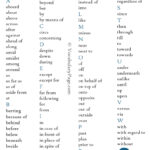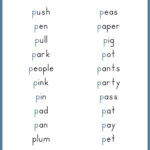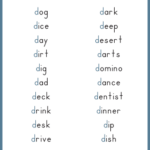Word That Start With Pre
1. Precede
2. Preempt
3. Precaution
4. Prejudice
5. Prehistoric
6. Premonition
7. Prearranged
8. Preoccupy
9. Preemptive
10. Preposition
11. Preconceived
12. Preconception
13. Preponderance
14. Preposterous
15. Preordained
16. Prepayment
17. Preamble
18. Predict
19. Predestined
20. Presume
21. Preschool
22. Preservation
23. Prejudiced
24. Presentation
25. Prefix
26. Preface
27. Premonitory
28. Pretext
29. Precursor
30. Preliminary
More About Word That Start With Pre
Welcome to our blog, where we explore the fascinating world of words that start with “pre.” Throughout human history, language has played a crucial role in our daily interactions, allowing us to communicate our thoughts, ideas, and emotions. Words beginning with “pre” hold a unique significance, as they symbolize anticipation, preparation, and an inherent sense of before.
The prefix “pre” is derived from the Latin word “prae,” meaning “before” or “in front of.” When attached to a root word, it often imbues the term with a sense of preliminary action, foreshadowing, or existing before a significant event or condition. These pre-words offer powerful insights into various aspects of our lives, covering a range of topics from prehistoric times to preconceived notions.
One of the most intriguing aspects of pre-words is their ability to transport us back in time. Exploring prehistoric phenomena, we delve into the prehistoric era, long before recorded history, to understand our ancient ancestors’ lives. With words like prehistoric, prehistoric, prehistoric archaeology, and prehistory, we unravel the secrets of our origin and gain a glimpse into a time when humans roamed the Earth without our modern knowledge and technologies.
Moving beyond history, we encounter words that encompass the anticipation and preparation required for specific events. Preparing for a journey, for instance, involves preliminary actions, such as prebooking tickets, prepacking essentials, and preparing the itinerary. Exploring the meaning of words such as preplan, prepare, and prebook, we venture into the realm of organization, emphasizing the importance of planning ahead for successful outcomes.
In the realm of science and medicine, pre-words play a vital role in understanding various conditions and medical procedures. For instance, the term “precaution” highlights the importance of taking preliminary steps to avoid potential dangers or pitfalls. Meanwhile, in dentistry, “premolar” denotes teeth situated before the molars, emphasizing the dental structure and function.
Furthermore, pre-words extend into philosophical and psychological realms, shedding light on the complex workings of the human mind. Consider the concept of “preconceived notions,” which encompasses the pre-existing ideas and prejudices that shape our perceptions and interactions with the world. These notions often influence our judgments and can hinder our ability to see beyond preconceived biases. By dissecting words like prejudice, preconception, and preconceived, we can develop greater self-awareness and challenge these pre-existing beliefs.
Additionally, the realm of arts and literature provides a rich source of pre-words, offering glimpses of various artistic techniques and movements. From pre-Raphaelite art, which sought to revive the detailed aesthetics of early Renaissance art, to prelude, a musical composition or movement that introduces a larger work, these words reflect the creative processes and the significance of preliminary steps in the realm of artistic expression.
As language enthusiasts and curious wordsmiths, we are thrilled to embark on this linguistic journey into the world of words that start with “pre.” In this blog, we will uncover the historical, scientific, philosophical, and artistic wonders that these words bring, offering insights into their etymology, usage, and context. From the evocative power of “prelude” to the cautionary implications of “precaution,” this exploration promises to be an enriching experience, encouraging us to delve deeper into the world of words and the stories they tell.
So, join us as we navigate through the vast landscape of pre-words, discovering the hidden meanings, unraveling the historical narratives, and uncovering the subtle nuances of language that pave the way for a greater understanding of our past, present, and future. Whether you are a word enthusiast, a student, a language lover, or simply intrigued by the power of words, we invite you to embark on this journey into the captivating realm of words that start with “pre”.
Word That Start With Pre FAQs:
1. FAQ: What is the meaning of the prefix “pre-“?
Answer: The prefix “pre-” commonly means “before” or “prior to” in words, such as “precaution” or “prearrange.”
2. FAQ: How do I use the prefix “pre-” in a sentence?
Answer: You can use it by adding it to a word to indicate that something happens before or is done in advance, like in the sentence “I like to preheat the oven before baking.”
3. FAQ: Are all words that start with “pre-” verbs?
Answer: No, words starting with “pre-” can be verbs, nouns, adjectives, or adverbs depending on the specific word, e.g., prevent (verb), prelude (noun), preset (adjective/adverb).
4. FAQ: Are there any exceptions to the “pre-” prefix rule?
Answer: Yes, “pre-” can sometimes change to “pr-” before certain letters, for example, “prerequisite” or “preview.”
5. FAQ: Can you provide examples of prepositions using the prefix “pre-“?
Answer: Examples of prepositions with “pre-” include preposition, prefix, prepositionist.
6. FAQ: Are there any alternative prefixes that have similar meanings to “pre-“?
Answer: Yes, some other prefixes with related meanings are “ante-” and “fore-,” which also signify “before” or “prior to.”
7. FAQ: How can I determine if a word is formed using the prefix “pre-“?
Answer: In most cases, you can simply look for a word that starts with “pre-” to determine if it uses the prefix.
8. FAQ: Does “pre-” always carry a positive connotation?
Answer: No, the connotation of a word with the prefix “pre-” depends on the specific word, as it can have positive, neutral, or negative meanings.
9. FAQ: Are there any commonly used idioms or phrases that contain the prefix “pre-“?
Answer: Yes, phrases like “preconceived notions” or “preemptive strike” use the prefix “pre-” to convey particular meanings.
10. FAQ: Can you suggest some commonly misspelled words that start with “pre-“?
Answer: Two common misspelled words are “preceed” (correct spelling: “precede”) and “preform” (correct spelling: “perform”).


















